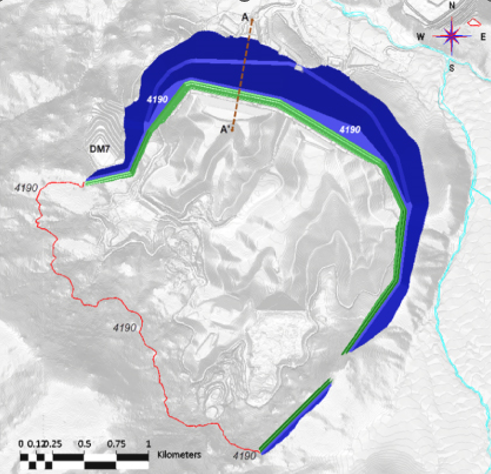Background
As part of a proposed expansion of the tailings management facility (TMF) embankment at an open-pit copper mine, Okane assessed the potential extent of sulfide oxidation caused by oxygen ingress. Okane also examined the potential for rock strength degradation within the embankment.
Approach
The assessment used the GeoStudio software suite to model two-dimensional coupling of TEMP/W, AIR/W, SEEP/W and CTRAN. It was observed that the original design did not mitigate the advective transport of oxygen into the system. The models demonstrated that sulfide oxidation of potentially acid-generating (PAG) material during construction created temperature gradients, leading to a steady advective flow of oxygen and subsequent sulfide oxidation within the expansion. Zones with reduced oxygen content confirmed the active consumption of oxygen. The models also indicated that even under varying seasonal conditions, low levels of material saturation allowed air permeabilities to remain at near-maximal rates.
Client Benefit
Okane’s work demonstrated that the original design did not effectively prevent sulfide oxidation and was likely to result in acid generation. A sensitivity analysis showed that incorporating finer-textured materials could restrict air permeability, reducing advective gas transport. This provided the client with an effective design that decreased closure liability and acid mine drainage treatment cost.

Plan view of the TMF embankment expansion [Digital Image]. Okane Archives.
Decreasing AMD treatment costs and closure liabilities through effective modeling and design.
Solutions
Case Studies
Other Projects
Discuss This Case Study
Future Proofing Tailings in the Andes
Reach out to us at info@okaneconsultants.com for more information—we’d be happy to answer any questions you may have.
Let's Get In Touch
